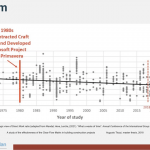(By Lee Kennedy Company & Strategy Matters)
In 2021, Lee Kennedy Company (LKCo) undertook an initiative to increase diversity, equity, and inclusion in all aspects of our company’s operations. We did not know, at that time, all that initiative would entail, and we continue to learn and grow through this work. One thing, however, has become immediately apparent: we cannot achieve equity without developing the ability to envision it. What does equity actually look like in action?
We hired a consulting team from Strategy Matters to assist in this effort, and they started with definitions. Strategy Matters defines equity as follows: “A system is operating equitably when all people receive fair treatment, access, opportunity, and advancement through addressing the varying barriers experienced by different groups. A system is equitable when it produces a proportional distribution of benefits and burdens across groups.”
We know who the “all people” in our company are – every one of our employees is mission-critical, and we care about their treatment. What, however, are the “barriers,” “burdens,” and the “benefits” referenced here?
We can see both benefits and burdens when we look closely at our practices in the areas of hiring, promotion, and retention. We can also see benefits and burdens in the areas of salary structures, office locations, access to “perks,” and personal leave policies. Informally, we can see benefits of social interactions and opportunities for employees and leadership – the proverbial golf games or going out for beers together yield access and build network capital.
To ensure an equitable workplace, we have to examine the impact on all of these things – both formal and informal – on each of our employees and our employees as a group. Do women get paid equally to men for the performance of the same or equivalent jobs? Do our Black employees have the same opportunities and advance at the same rates as our white employees? Even asking these questions, let alone acting on any data gathered, is a radical act in our industry. And yet, if we shy away from asking these questions, we cannot possibly envision equity.
LKCo is committed to ensuring that we both attract and retain a diverse workforce. We know that investing in equitable practices is essential to meeting that goal. Consequently, we are opening these dialogues and also investing in a more inclusive culture to enable any employee, whether in the field or in HQ, to raise a concern, voice a suggestion, or offer an idea for improving our practices.
How do we build an inclusive culture?
We believe that an inclusive culture is one where everyone feels valued, welcomed, and inspired to share their opinions and views. To create such an environment, we are investing in training for both our managers and our future managers, specifically in these areas:
- Managing Unconscious Bias. We are all hardwired for bias – it is our evolutionary way of taking shortcuts in our thinking. Shortcuts are sometimes helpful but can also lead to decisions made on incomplete information. When we lack the ability to overcome our innate tendency toward mental shortcuts, we amplify the likelihood of creating inequities and diminishing inclusivity in the company. Both of these problems can also undermine our efforts to diversify our team.
- Building “healthy conflict” into teams. Healthy conflict is present when teams can disagree about what is right while avoiding fighting over who is right. We have to train our teams to solicit divergent opinions, respect them when they arise, and work through them for the sake of better decisions down the line. When people can’t do this, we say that they live in “artificial harmony” – which is no fun and also no good for the company. We aim to use healthy conflict to build relationships and also kick the tires on decisions before we take them live. Healthy conflict is a skill which can also help teams manage their own biases; when we challenge each other, we all come out with better, sharper, more well-grounded decisions.
- Training our leaders to be both “warm” and “competent.” We know that great team leaders are like great coaches: they care deeply about their staff and they also have the capacity to execute on difficult decisions. Think of Coach Taylor from Friday Night Lights – that is how we hope our managers can lead their teams!
As we build these skills and competencies across the company, we expect to expand equity – and we also anticipate that we’ll be increasing our own ability to envision a truly equitable company. Envisioning equity means that we can share our hopes for a company that offers fair opportunities to everyone, and in which everyone who works here is valued primarily for who they are and what they bring,
We know that this work is a way that we can bring the courage of our core values to everything we do. Whether re-thinking our decision-making processes, our organizational chart, or our pay scales, using a diversity, equity, and inclusion lens is making LKCo a stronger company day by day.
How will we know?
One thing too often overlooked in DEI plans is tracking and long-term accountability. We’ve started with our baseline analysis of how diverse (who works here, in what positions?), equitable (pay equity, fairness in policies about perks, performance reviews, and promotions), and inclusive (how valued and respected do our employees feel?). Having this baseline data will help us over the coming years to track our progress, make course corrections, and continue to invest in being best-in-class in the construction industry when it comes to being a great place to work.










